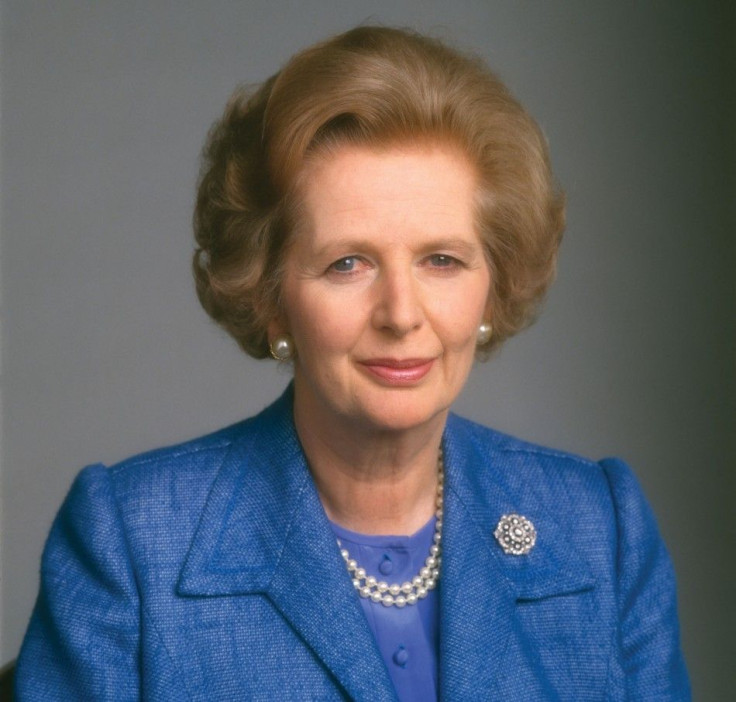Tory Love: Boris Johnson Praises Margaret Thatcher, Slams EU

The Mayor of London, Boris Johnson, declared that this year’s Nobel Peace Prize should have been awarded to former British Prime Minister Margaret Thatcher rather than to the European Union, citing that the "‘Iron Lady" has done far more to ensure peace in the continent than the bureaucrats in Brussels.
In an op-ed piece published in the Daily Telegraph newspaper, Johnson (a Conservative like Thatcher) berated the Nobel authorities for presenting the prestigious peace award to the EU instead of a human being.
“We can only wonder what madness took hold at the judging lunch the other day, when that committee of Norwegian worthies was asked to appoint this year’s winner of the prize,” he scoffed.
“Perhaps they were drunk; perhaps it was one of those morose Scandinavian afternoons when the sun has sunk and there is no alternative but to hit the aquavit. Whatever it was, they must have been out of their minds to ignore all human candidates and award the prize to the European Union. And for bringing peace to Europe!”
Johnson then sarcastically commented that honoring the EU would be tantamount to awarding steroid-cheat Lance Armstrong for “promoting good sportsmanship.”
The EU’s part in creating peace in Europe, the Mayor insisted, “has long been exaggerated, and I am afraid its signature policy is now in danger of producing the exact opposite.”
As an alternative to the EU, Johnson nominated Thatcher -- who left office more than 20 years ago -- as a far more worthy recipient of the award.
“[Thatcher] has done more than just about anyone to preserve peace and democracy in Europe,” he wrote.
“It was her 87th birthday on Saturday and it would have been a nice thing if the Nobel committee had recognized her at last.”
In defending Thatcher, Johnson pointed out that peace in postwar Europe came about by military might, not through diplomacy -- namely the forces of NATO and the U.S. military presence throughout western Europe.
“It wasn’t the EU that went toe to toe with Russia over the stationing of Soviet missiles in Europe,” he noted. “It was [U.S. President Ronald] Reagan and Thatcher. It was her ideas of free market democracy that inspired the peoples and politicians of Eastern Europe -– and in some cases still do. Why not honor her, rather than a bureaucracy?
Johnson further cited the near-catastrophic conditions in Greece and Spain as a compelling evidence against honoring EU for promoting “peace.”
“When the German chancellor paid a visit [to Athens] last week, to inspect the effects of the EU-imposed austerity measures, they had to protect Angela Merkel with 7,000 police -- the largest such operation in history, and still there were protesters dressing up as Nazis,” he thundered.
“In Spain, there are now thousands of young people fleeing for a better life in Latin America. The whole European economy is being held back by the fear that the euro will break up. … Far from ending tensions between EU countries, the euro project is now massively increasing them.”
Johnson explained that Thatcher has long advocated against seeking to unite Europe politically, “when the peoples of EU nations were so different in their habits and productivity. She warned of a one-size-fits-all monetary policy and she spoke out strongly against the lack of democracy in the project. She has been completely vindicated.”
He concluded: “I suggest we turn down this … award for an institution that has got things so badly wrong, and insist that it be handed instead to a woman who got it overwhelmingly right. Thatcher, not the EU, understood the route to peace in Europe.”
Johnson is a rising star among the British Conservative party, although his unabashed love of Thatcher rubs some the wrong way.
Politics.co.uk reported that some British observers would likely not regard Thatcher as a beacon of peace, given her belligerent attitude during the Falkland War in 1982 against Argentina.
Dr Victoria Honeyman, a Lecturer in British Politics, at the University of Leeds, commented that Boris Johnson’s comments highlight both his distrust of the EU as well as his allegiance to Thatcher.
“While [Boris] is almost certainly right to point to her work with Reagan during the Cold War, her actions over the Falklands and her controversial style might not naturally lend themselves to a Nobel Peace Prize,” she said,
“That is not to say that there haven’t been some rather controversial decisions in the past, but I doubt that Thatcher would be at the top of everyone’s list of possible recipients.”
Moreover, an attack on the EU would dovetail quite nicely with Thatcher’s own anti-European attitudes, particularly toward the end of her tenure in government, she added.
Johnson is also becoming a thorn in the side of current Prime Minister David Cameron. Although the mayor has repeatedly denied that he wants to become Prime Minister, he has frequently criticized Cameron over a number of issues.
“If Johnson does harbor dreams of being Prime Minister one day, I think they are likely to stay just that – dreams,” Honeyman noted.
“He is not a uniting figure, either within the party or outside of it and would be unlikely to gain widespread support, a necessity for a possible Prime Ministerial candidate. That isn’t to say he wouldn’t try, I just think he would be unlikely to become either Prime Minister or party leader.”
She added that Johnson’s relationship with Cameron seems rather lukewarm at best.
“Both say it is good, but there have been some public disagreements over policy and therefore it seems inevitable that relations are not perhaps as good as they could be,” she added.
© Copyright IBTimes 2024. All rights reserved.











